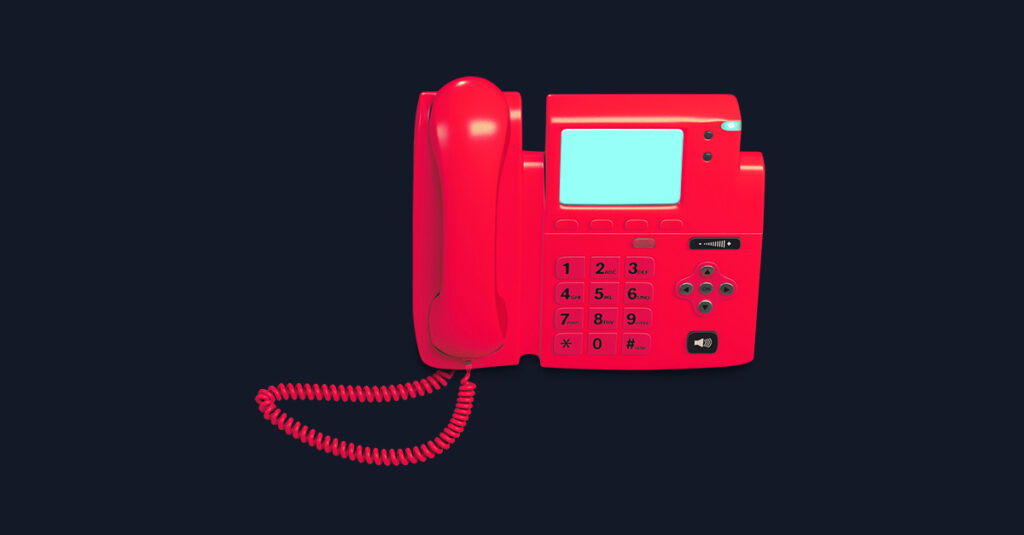
Image: Ban
What is VoIP Phone?
Voice over Internet Protocol, or VoIP for short, is a simple idea with a complicated name: A VoIP phone functions just like any other, but instead of transmitting your voice over copper telephone wires, it uses the internet.
How does VoIP work?
For users, VoIP phones function just like traditional phones. You pick up the phone, dial a number, and away you go. But VoIP phones also open up a world of possibilities that go beyond voice, while bringing down the cost of calling.
It turns out that VoIP as a technology isn’t even all that new. It started out in 1973 when the internet was still in its infancy. Scientists working on ARPANET (what would eventually become the internet as we know it) realized they could take the human voice, turn it into data, and then send it over the same network that carried their keystrokes.
Like everything else on the internet, it involves taking the digital data, breaking it into tiny pieces, sending those pieces over digital lines and then putting them all back together again. With VoIP, this happens in milliseconds.
Today you can find VoIP everywhere, but it’s not usually called VoIP. Facebook Messenger uses VoIP whenever you voice chat with someone through the app. The same goes for tools like Skype, WhatsApp, WeChat, FaceTime, or almost any other messaging tool that lets you switch to voice.
Benefits of VoIP
When it comes to your home phone, VoIP eliminates the need for a separate phone line into your house. Everything runs through your home router, so instead of an internet connection and a phone connection, you just need an internet connection.
Most importantly, VoIP offers a cheaper alternative to traditional phone services. This is especially true when it comes to international calling. Remember when you had to dial extra digits or have a separate deal with the phone company just so you could make calls to relatives overseas? Now, with VoIP, making an international call is just as cheap as sending an email.
Power considerations for using VoIP
While VoIP phones work very much like regular phones, there are some differences to be aware of.
Unlike a hardwired landline, which is powered through the copper cable that transmits your voice, VoIP phones are dependent on your home’s electrical and internet service. If your router, modem or VoIP phone no longer have power, you won’t be able to make or receive calls, but there are two things you can do to manage this.
- For most of us, a cell phone will fill in for those rare occasions when you lose power. Keep one handy (as if you aren’t clutching it right now).
- Get a backup battery for your router that will keep your VoIP phone running for hours after an outage.
If you’re interested in making the most of your existing internet connection, consider exploring VoIP.




I need to obtain landline service for our business Pier Associates in St. Petersburg, Florida.
Hi Lynn, for ordering business services you’ll want to check out https://fybr.to/3XdB3mE, and you can contact our sales team by phone or chat with them (bottom right corner). Hope this helps! ^Michael
If I *did* want to use an actual landline (because of earthquake), how do I know if I can even do that? Is it a matter of plugging a phone into a jack and seeing if I get a dial tone?
Hi Norma, great question. It is a bit more complicated than just checking to see if you have tone. I’m going with the assumption that you are referring to Voice over IP service as covered in this article. Voice over IP would require an Internet connection and a subscription to the service, which in turn requires the devices that provide the Internet connection be powered. This would include the Internet Router and the adapter device that delivers the voice. In our service installations this is typically built in to the Router or Optical Network Terminal device. For Voice over IP service requiring fault tolerance, we have power backup options through our help center here: https://fybr.to/3TLga0O. Hope this helps! ^Michael